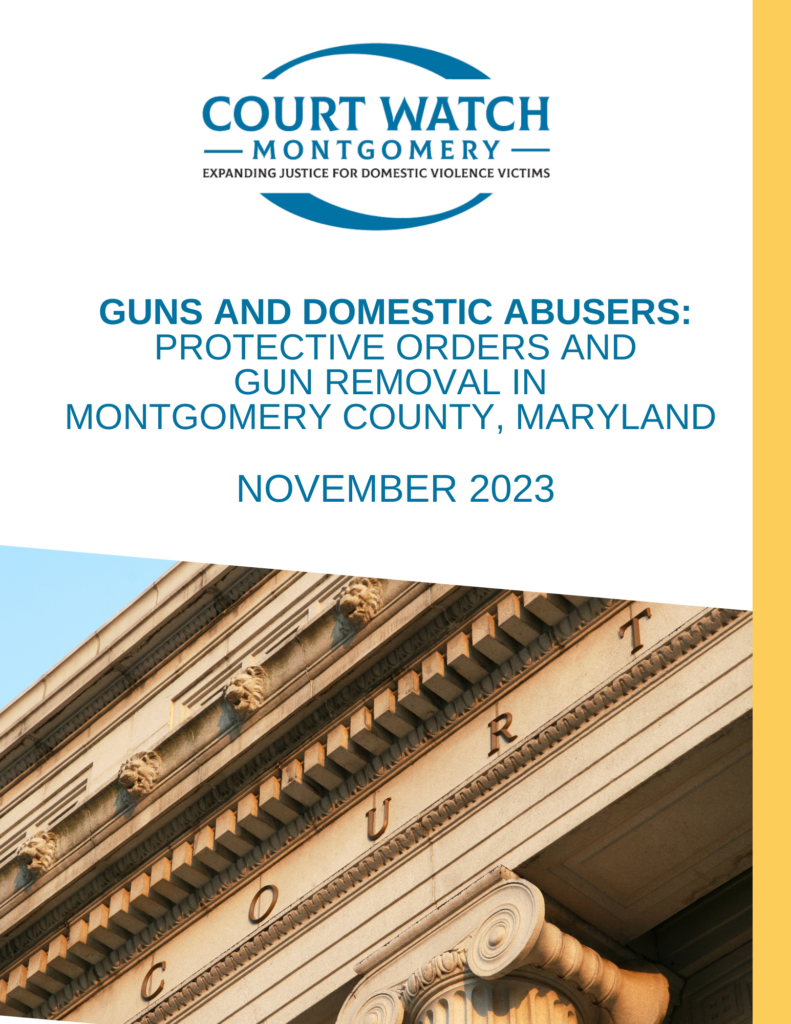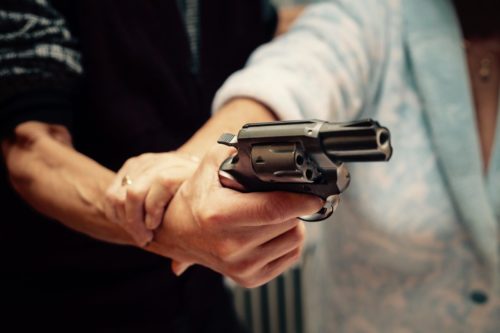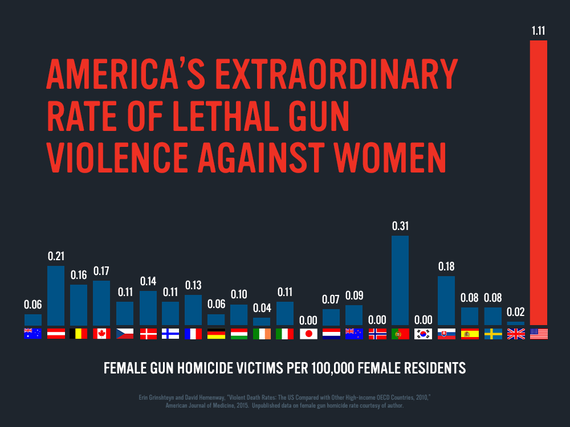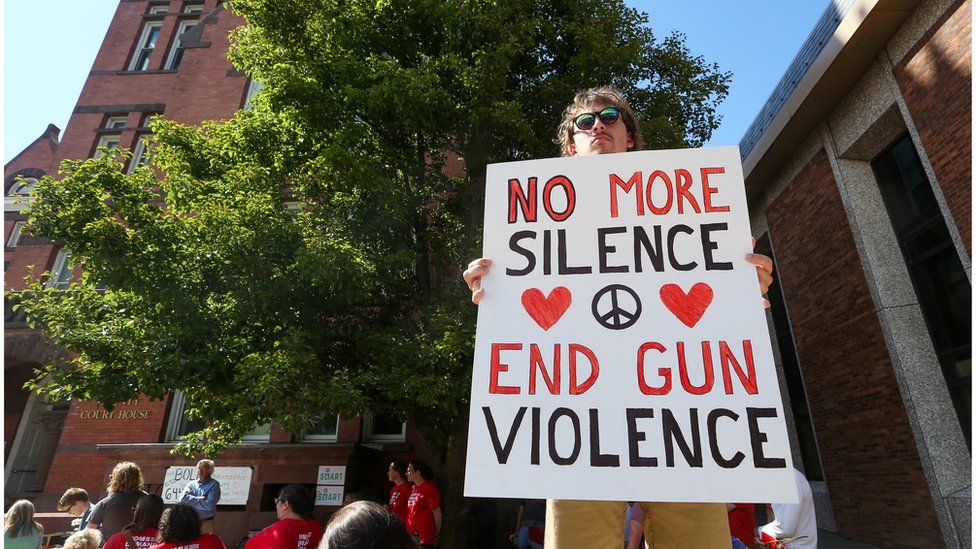Guns and Domestic Abusers: Protective Orders and Gun Removal in Montgomery County, Maryland

Recognizing the extreme danger of guns in domestic violence situations, and the risk to victim safety posed by the Rahimi case, we believe it is timely to report on relevant laws in Maryland and practices in Montgomery County to keep firearms away from domestic abusers through use of civil protective orders. Part I of this report presents an overview of federal and Maryland law governing domestic violence protective orders and firearms, followed by a description of the protective order process in Maryland and procedures used by the Montgomery County Sheriff’s Office to serve orders and remove guns. Data on the number of guns removed from abusers in Montgomery County also are presented. Part II of the report presents findings on the use of gun-related best practices by District Court judges at protective order hearings, based on data collected by Court Watch volunteers and our review of the protective order service process in Montgomery County. Conclusions and recommendations to address these findings are included at the end of the report.
Rate at which judges tell respondents to turn in guns varies widely

It’s the law. When a final protective order is issued in Maryland, all respondents must turn in any guns they possess to the Sheriff’s Office for the duration of the order. The rate at which District Court judges are telling respondents to turn in their guns, however, varies dramatically. One judge last year told respondents […]
District Court judge fails to warn respondents to turn in firearms
The Montgomery County Sheriff’s Department has many important jobs. One of their most important tasks is making sure that respondents who possess firearms turn them into the Sheriff’s Office for the length of their final protective order. Judges also have an important role to play in reminding respondents of the gun turn-in requirement at the […]
Maryland child deaths related to intimate partner violence 2004-2016

This report documents the tragic deaths of 35 children state-wide in intimate partner related violence.
Almost a third were killed during dangerous court-ordered exchanges for visitation or during
unsupervised visits with dangerous or unstable parents. Court watch reiterates that these deaths might
have been preventable were safe visitation services widely available. Increasing the number of domestic
violence victims that have viable safety plans and strong protective orders would also help prevent such
deaths.
Domestic violence and mass shootings are linked

Domestic violence and mass shootings are far more closely linked than you might at first think. The Washington Post reports that before committing the worst mass shooting in U.S. history, the Orlando shooter was an abusive husband who beat his wife repeatedly while they were married. The May 6 gun murder of two people (injuring […]
Judges fail to discuss gun restrictions with convicted abusers

Court Watch’s new study shows judges told only 1 out of 126 convicted abusers they were banned from possessing or purchasing guns. When a domestic violence abuser has access to a gun the chances of a victim being killed rise 500%. Judges need to be actively applying Maryland law by informing relevant convicted offenders verbally and in […]
Abusers with Guns: The critical role of Maryland courts in reducing lethal risks to domestic violence victims

This report examines how Montgomery County District Courts currently apply existing gun laws in criminal domestic violence dockets and suggests court policies and practices that may save lives by reducing the number of guns in the hands of convicted DV offenders. While under Maryland law an individual convicted of a crime of violence is permanently disqualified from owning or possessing a gun, in the 126 cases we heard where defendants were convicted of a crime of violence, only one was told by a judge that he was permanently disqualified and what the potential penalties were, while none of the 126 individuals were notified in writing of their personal disqualification and potential penalties. CWM recommends that judges at sentencing inform offenders of their disqualification, ask them under oath if they possess guns, describe the penalties for violating the statute and reiterate that offenders can turn any guns in to law enforcement. A clear written notice outlining the defender’s disqualification from purchasing or possessing guns should also be provided to each such defendant. To ensure that dangerous domestic violence offenders relinquish all guns immediately, we recommend that the courts work with police to share information more rapidly on all offenders who become disqualified from possessing guns.